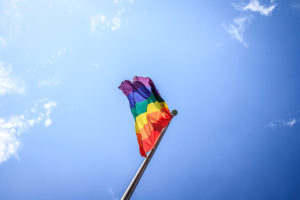What’s the Equality Act and How Can You Make a Difference?

Legislation that protects LGBTQ+ people in America is long overdue. The lack of federally mandated protections leave those who seek justice for discrimination very few options, especially since many states throughout the country do not explicitly have those protections in their laws. Already passed in the United States House of Representatives, the Equality Act will ensure those vital federal protections for the LGBTQ+ community by amending the Civil Rights Act of 1964 to add gender identity and sexual orientation to the list of protected classes. The bill will also codify equal protections for LGBTQ+ people within healthcare, employment, education, housing, and federally funded programs.
Opponents of the Equality Act argue that federally mandating protections for LGBTQ+ people violates religious freedom―more specifically, the Religious Freedom Restoration Act (RFRA). Under the guise of religious freedom, the RFRA gives special benefits to certain business, organizations, and individuals who discriminate against others. In the past, the federal law has been used as a justification for businesses to not meet their healthcare obligations, leaving thousands of people without access to contraception, and to justify businesses’ and tax payer funder organizations’ refusal to serve LGBTQ+ folks simply because of their sexual orientation. Essentially, under the RFRA, companies, individuals, and tax-payer funded organizations (like foster care agencies and universities), have been able to use religion to deny LGBTQ+ people public services and healthcare. This is why the Equality Act is so critical. Once passed, it will prohibit religiously-motivated discrimination against LGBTQ+ people by making the legal foundation of these “religious freedom” claims null.
As humanists, we adamantly oppose religious exemptions to anti-discrimination protections, especially as an argument against establishing sexual orientation and gender identity as protected classes, as they contradict the rights affirmed in the First Amendment. And we’re not alone.
A new survey from the Public Religion Research Institute (PRRI), found that Americans across every subgroup (race, age, religion, partisanship, and geography) support protections for LGBTQ+ people from discrimination in jobs, public accommodations, and housing. Even those least likely to support nondiscrimination protections, like Republicans and white evangelical Protestants, show majority support.
Although it often seems like more, only seven percent of Americans are consistently unfavorable toward LBGTQ+ equality policies, including opposition to same-sex marriage and non-discrimination laws. We’re still a ways away from unanimous support of LGBTQ+ equality, but the data from PRRI shows a significant increase in the past ten years, indicating that the values of Americans―no matter where we live, the party we vote for, or the church we go (or don’t go) to―are changing for the better.
It’s clear that protecting LGBTQ+ folks from discrimination is not just a humanist value, but an American one, and it’s about time our representatives pass legislation that mirrors that value. Although the Equality Act has been passed in the House, it’s currently under review by the Senate Judiciary Committee. This is where you come in.
Through the American Humanist Association’s Humanist Action Headquarters, you can take action now to ensure “religious freedom” can no longer be used as a license to discriminate and LGBTQ+ compatriots are protected by law. Participation in the democratic process is a highly valued aspect of humanism. Contact your senators today to share your thoughts on the Equality Act and urge them to ensure it becomes law. Together, we humanists can make a difference.
